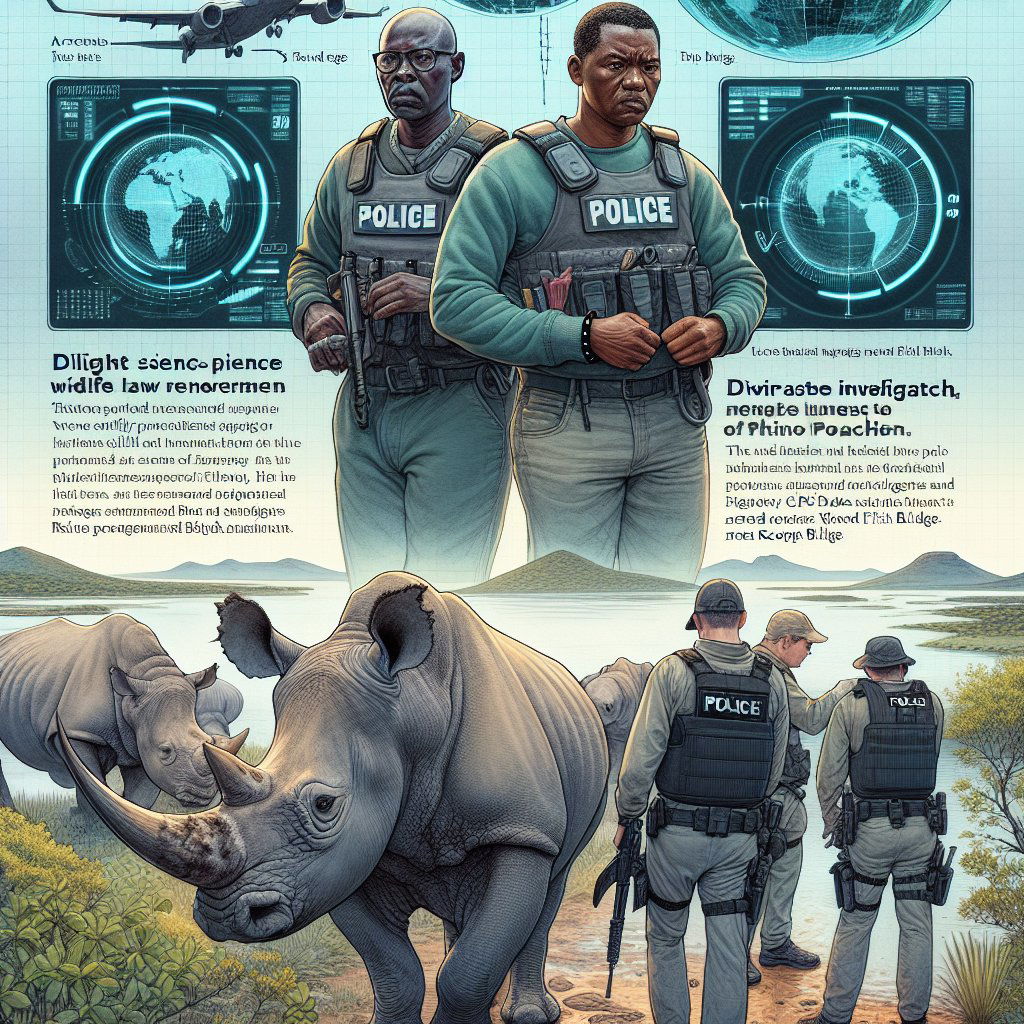Image created by AI
Rhino Poachers Get 20 Years Behind Bars in Eastern Cape High Court Ruling
In a decisive win for wildlife conservation, the Eastern Cape High Court, sitting in Makhanda, has sentenced two men to 20 years imprisonment each for the killing of two critically endangered black rhinos at the Great Fish River Nature Reserve (GFRNR), demonstrating South Africa's stern stance on combating rhino poaching.
Arthus Titus Machava, 54, and Disco Mahlaule, 49, were found guilty of charges including contraventions of the National Environmental Management: Biodiversity Act, theft of rhino horns, contravention of the Nature and Environmental Conservation Ordinance, and the possession of unlicensed firearms. Their sentences, amounting to a combined 55 years as determined by the High Court, have been ordered to run concurrently, culminating in a 20-year effective term for each perpetrator.
Luxolo Tyali, spokesperson for the National Prosecuting Authority (NPA), revealed the duo's connection to a larger syndicate responsible for the poaching of rhinos, their prime role being the transportation of weaponry and equipment vital for executing poaching operations. The court heard how Machava and Mahlaule travelled from Limpopo and Gauteng to the Eastern Cape, coinciding their illegal activities with the full moon period in July 2023—a time known to be favored by poachers for its natural light.
Their nefarious deeds culminated in the shooting, dehorning, and theft of the horns of two black rhinos—an act leaving an indelible mark on the species’ already dwindling population. The criminals were arrested at Koonap Bridge near Makhanda after diligent police work and extensive investigations that used GPS data to trace their movements over 1,000 kilometers, culminating in their arrest.
Senior state advocate Williemien Vos highlighted during the trial the critical need for imposing tough penalties on those convicted of such wildlife crimes. She stressed the importance of the black rhino's critically endangered status and the imperative of safeguarding the remaining individuals from such ruthless destruction for trivial and illegal economic gains.
Though the rhino horns were not recovered, the guilt of Machava and Mahlaule was indisputable, with the court presented with evidence including GPS tracking data, financial transactions linked to their operation, and communication with known poachers.
This sentencing sends a powerful message that wildlife crimes, particularly those affecting endangered species, will not be tolerated, and the South African legal system is prepared to hand out sentences that reflect the gravity of these destructive actions. It marks a significant step in the fight against rhino poaching and serves as a sharp deterrent to those who might consider engaging in such illegal activities.










